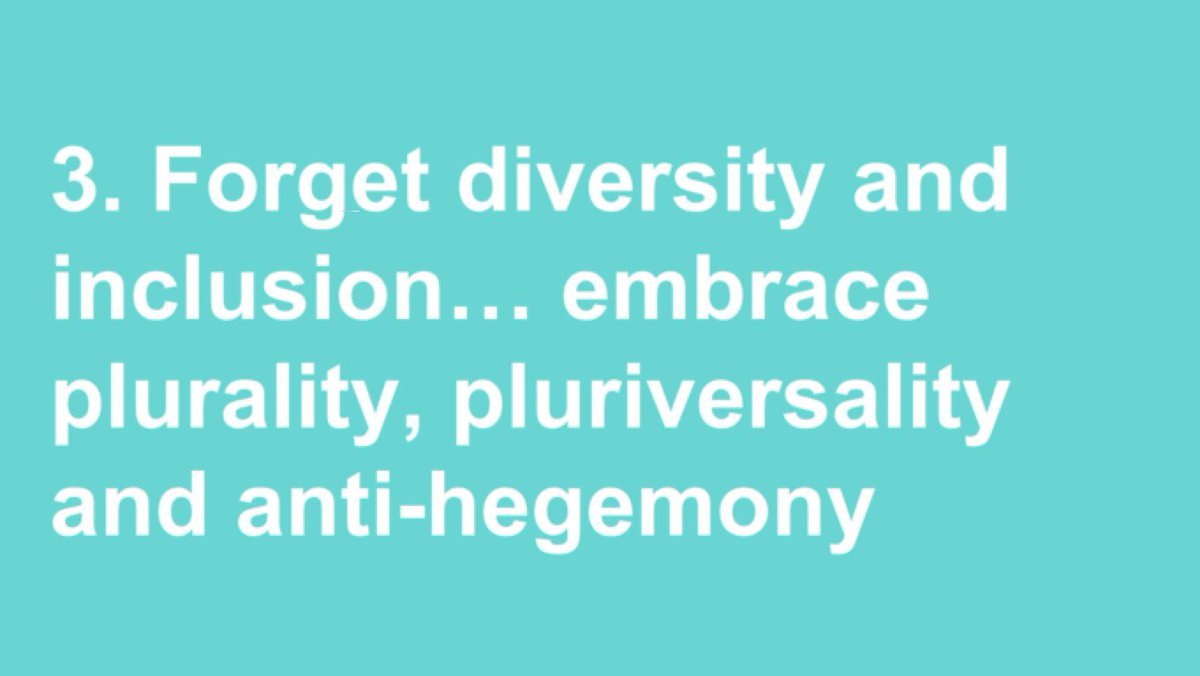
Sociological User Researcher. Equity Design. Talks ethics at @HmntyCntrd. Dreams of retiring as a food blogger. She/her. Same on BlueSky & LinkedIn.
2 subscribers
How to get URL link on X (Twitter) App


https://twitter.com/albanvillamil/status/1664110533224562688Something I've been mulling over is "principles over practice."
https://twitter.com/emollick/status/16373286010109091841. The review’s focus on generalizability, assuming the paper was framed as exploratory, is at best inapplicable if not inappropriate.
https://twitter.com/KathrynNowotny/status/1506685537297604608Some of the linked resources try to weigh in-session distress with post-session self-reported feelings of "being heard" and catharsis. It would be interesting to analyze how the researchers:

 It’s fun trying to come up with rules because these Twitter starter rules are a *choice*. Might use my Practical Ethics working group as a model…
It’s fun trying to come up with rules because these Twitter starter rules are a *choice*. Might use my Practical Ethics working group as a model…

https://twitter.com/CuriousScutter/status/15063775020292382833. Racist, colonialist, and appropriative language AND *thinking.* For every call to remove the term from common usage, how are designers challenging their frameworks, processes, and tools? Dark patterns is being swallowed by the checklist culture of UX.
https://twitter.com/albanvillamil/status/1364626804871483396?s=20&t=GMwHc45PEai6oY1kGUjOuQ

 Rauchberg proposes "neuroqueer technoscience", which addresses how neurodivergent people were always already creating, making, and engaging with technology. It also disidentifies with neurotypical epistemologies and compulsory able-mindedness to unsettle cultural conditioning.
Rauchberg proposes "neuroqueer technoscience", which addresses how neurodivergent people were always already creating, making, and engaging with technology. It also disidentifies with neurotypical epistemologies and compulsory able-mindedness to unsettle cultural conditioning.
https://twitter.com/jananiu/status/1501915636653600779Using the 1st person does several things. One is that it provides a sense of place. Suddenly we're made more aware of how we could have influenced *what happened* during data collection, analysis, synthesis etc. Consequently, we also lose the "authority" of supposed omnipotence.


 Reminds me of this earlier discussion as well as what skills and behaviors/performances are categorized by peers as necessary for certain types of research.
Reminds me of this earlier discussion as well as what skills and behaviors/performances are categorized by peers as necessary for certain types of research. https://twitter.com/albanvillamil/status/1187488778207875077

 Garcia & Cifor argue that as a Feminist method duoethnography can highlight how "diverse epistemologies have an impact on design goals and processes....[challenge] established identity models, defamiliarization of domestic tech, and operationalization of intimacy and sexuality"
Garcia & Cifor argue that as a Feminist method duoethnography can highlight how "diverse epistemologies have an impact on design goals and processes....[challenge] established identity models, defamiliarization of domestic tech, and operationalization of intimacy and sexuality"

 2/ In #CriticalUX's "Beyond Accessibility," @jtknoxroxs and @elizejackson (moderated by @LindsPlay) will call out how design/accessibility discards, appropriates, and assimilates disability and will then discuss what alternatives they ground their work in hmntycntrd.com/critical-ux
2/ In #CriticalUX's "Beyond Accessibility," @jtknoxroxs and @elizejackson (moderated by @LindsPlay) will call out how design/accessibility discards, appropriates, and assimilates disability and will then discuss what alternatives they ground their work in hmntycntrd.com/critical-ux 


https://twitter.com/dr_know/status/1456968374047674371(2) Co-constructing a set of notes can be incredibly valuable when working with participants* who are members of communities that are overresearched and/or have had to reckon with (unanticipated) consequences of researcher interpretations
https://twitter.com/albanvillamil/status/1419688386642812933

 We know that race is socially constructed but what does it mean, as sociologist Dorothy E. Roberts notes, that race is an invention? How have social researchers historically invented notions of race that have served their economic and political goals (and oppression)? #UXRConf
We know that race is socially constructed but what does it mean, as sociologist Dorothy E. Roberts notes, that race is an invention? How have social researchers historically invented notions of race that have served their economic and political goals (and oppression)? #UXRConf 

 @ProfCAnderson: The "Republican heroes of democracy" is a script that needs to be kicked back. Raffensperger & Kemp still engaged in voter suppression--they just weren't cruel enough. The mob was about the addictive power of white supremacy #UnderTheBlacklight
@ProfCAnderson: The "Republican heroes of democracy" is a script that needs to be kicked back. Raffensperger & Kemp still engaged in voter suppression--they just weren't cruel enough. The mob was about the addictive power of white supremacy #UnderTheBlacklight 


 @mamaazure's manifesto of critical #design education
@mamaazure's manifesto of critical #design education